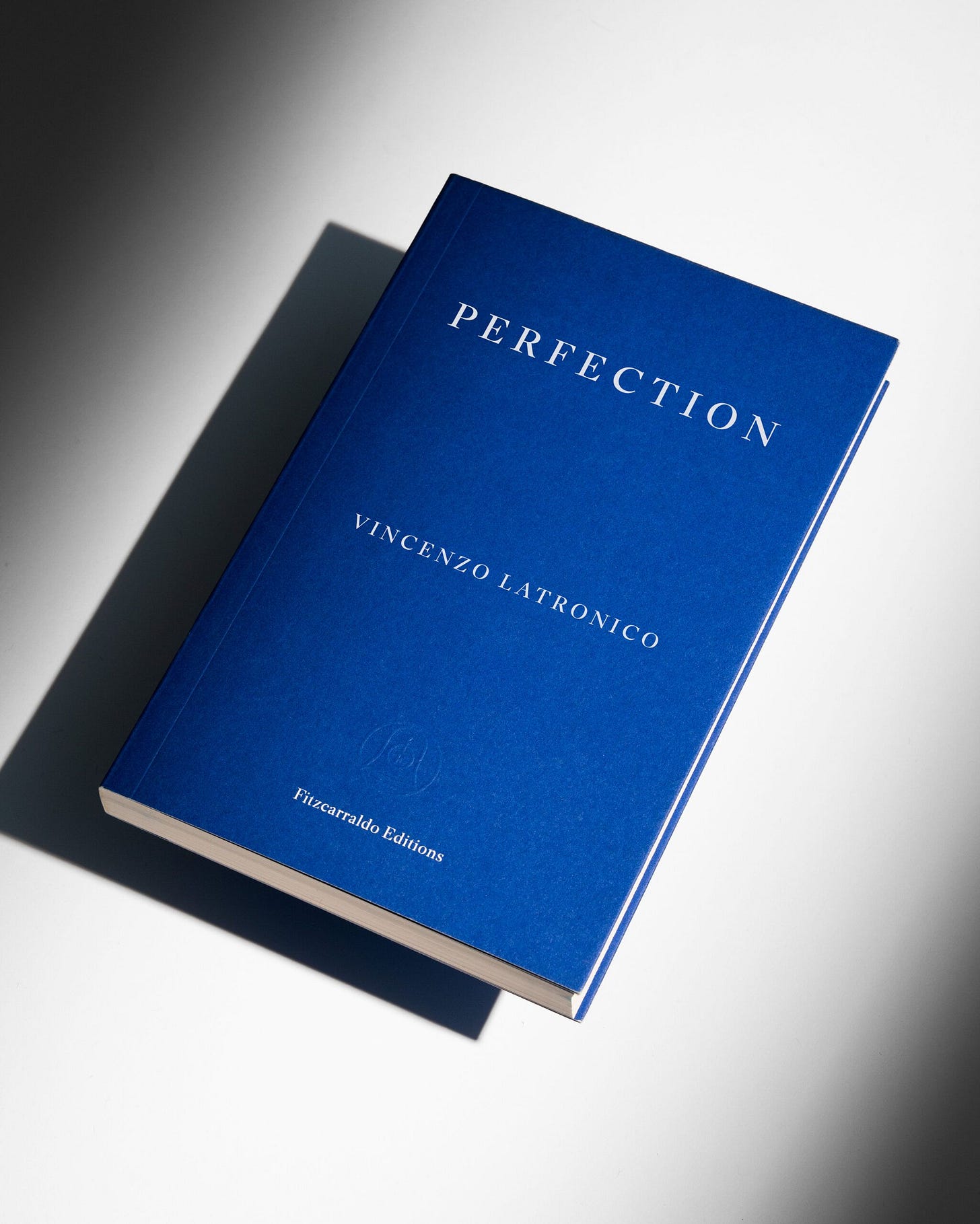my favorite petty habit + a review of Vincenzo Latronico's Perfection
Dear Gentle Readers,
I’m writing this from bed, propped up against too many pillows, with the London sun pouring in through the open window - spring is definitely here, and if I squint just right, I might even call it summer. The light alone feels like a shot of espresso for the soul.
A small confession from daily life: I’ve recently discovered a new, admittedly petty habit - the kind that’s silly, slightly unhinged, and completely satisfying. (If we haven’t met, I basically embody the spirit of those “can I be mean for a second?” memes floating around your feed.)
Here’s the setup: I was broken up with the week before Christmas - at long last, Last Christmas finally hits lyrically. But no matter - I’ve healed, moved on, re-entered the dating scene with some cautious optimism. The ex in question was a man proudly, even performatively offline - our only shared digital space was Goodreads, a corner of the internet I personally introduced him to. These days, that’s our only remaining connectingthread. I don’t know anything about his life now - just what he’s reading.
And here's where it gets slightly ridiculous: I’ve realized I derive a truly unreasonable amount of joy from every single one- or two-star review he leaves. I delight in them. Is it revenge? Karma with a literary bent? Possibly. But honestly, as far as post-breakup pettiness goes, doesn’t it still feel kind of… wholesome?
Lately I’ve been thinking a lot about the tension between surface and substance - the kind of lives we build around aesthetics, and the quieter questions that live underneath. Perfection by Vincenzo Latronico found me right in the middle of that thought.

It’s been described as satire, but that doesn’t quite capture how it feels to read as someone inside the generational gaze it casts. If anything, it reads more like anthropology - not from a cold distance, but from the inside out. I wrote a short reflection on Goodreads after finishing it:
An incisive portrayal of millennial life, digital culture, and the illusion of authenticity in highly curated lifestyles. A topography not only of a place - Berlin in the 2010s - but of an era.
Critics have lauded the novel for its sharp satire, but as a millennial, its elegant prose felt more like sociological insight than critique.
Deliciously pessimistic in its exploration of generational anxieties - is it too soon to call it a millennial classic?
Side note: I’ll probably never be able to appreciate the original, but Hughes’ beautiful turns of phrase, oh my. No coincidence that she was the English translator for Hurricane Season too.
The novel follows Anna and Tom, a creative couple drifting through the soft-lit minimalism of expat Berlin - all terra cotta pots, art exhibitions, and perfectly poured flat whites. They’re fluent in the language of taste, of curated experiences and soft politics, of relocation as renewal. But as their lives circle through different cities -Lisbon, Palermo, Athens - they begin to encounter the unsettling sameness of it all. Like moving through an Airbnb carousel where the furniture changes but the emptiness stays.
Latronico’s writing is elegant and restrained, never overwrought. It holds a mirror to the performative rhythm of millennial life - the pursuit of meaning through design, the slippage between being and branding. What emerges is less a novel in the traditional sense and more a quiet elegy for a kind of lifestyle that promised everything but never quite knew how to deliver presence.
I tore through it in two days flat and haven’t quite stopped thinking about it since. I’ve recommended it to anyone who’ll listen - and, on more than one occasion, to someone who already has, only to recommend it again with the same breathless urgency.
What about you - what are you reading these days, and does it feel like a mirror to where you are in your life right now?
Love,
Katerina


